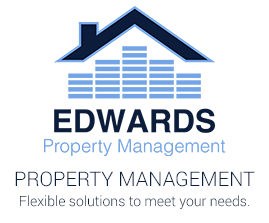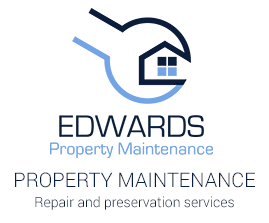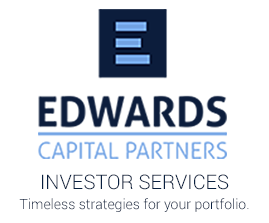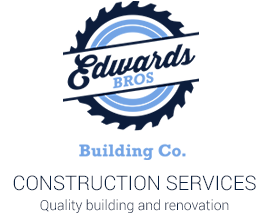Individuals invest in income producing properties for several reasons…some as a means to realize a steady “passive” income stream, but for others it’s a method by which they wish to  fund their retirement. While all investments involve some level of risk, at the present time there are few safer investments than downtown Raleigh, NC real estate – for those who truly know this market. A discussion on retirement strategies may not sound like the most invigorating of topics, but it’s one worth prioritizing…sooner than later – and if you're a real estate junkie like we are – then it’s very exciting!
fund their retirement. While all investments involve some level of risk, at the present time there are few safer investments than downtown Raleigh, NC real estate – for those who truly know this market. A discussion on retirement strategies may not sound like the most invigorating of topics, but it’s one worth prioritizing…sooner than later – and if you're a real estate junkie like we are – then it’s very exciting!
Let’s dig a little deeper into some of the less touted advantages of real estate investing:
|
Real Estate vs. Market Traded Investments |
||
|
|
Investment Real Estate |
Stocks-Mutual Funds |
|
Asset Ownership |
Title (Security Instrument) to Hard Asset |
Stock Certificate |
|
Income (Cash Flow) During Holding Period |
Monthly Rental Income (Paid by tenant) |
Dividends (if any?) |
|
Inflation Protection |
Rental Income is Indexed/Adjusts with Market |
None |
|
Effect on Value of Asset |
Appreciation, Leverage, Rental Income, Renovation + more! |
Market Driven, Dividends |
- Asset Ownership – Property ownership = Title to a Hard Asset
Yes, you can see and touch your investment! Although this fact is true - and as real estate investors and property owners ourselves it’s one of our favorites - it’s not exactly what we mean. When one owns a piece of rental real estate, that asset is secured by a title (think Deed or Deed of Trust) that’s typically filed with the local county recorder - depending upon your locale. The title is normally insured by title insurance with a title company. As for Stocks…well, good luck with those “voting rights” and corporate board meetings. - Income During Holding Period & Inflation Protection– Monthly Cash Flow
When was the last time your Financial Advisor contacted you to share that they were going to begin sending a significant monthly check your way? Sure, we understand and appreciate the value of dividends (paid quarterly/yearly - if at all). But these dividends typically pale in comparison to the advantages of monthly rental income. What if the same Financial Advisor shared that they were going to begin sending a monthly check for $500, $800, or…$1,100+ each month? What if, in the same conversation, they shared that you now have the ability to multiply the amount of those same monthly checks by 2, 3, or even 5+ times – and your monthly income could now be as much as $1,000 - $5,500+ per month – even before your retirement years if you so desire. Now that’s a different conversation! This scenario is a reality with income-producing real estate. The real market income is determined by the demand for the property (location, size, unique qualities) as a rental home. The rental rate – or income – can be adjusted to reflect changes in inflation. This income control is something that’s just not even a point of discussion when it comes to simply hoping for a dividend payout. - Effect on the Value of the Asset
Let’s revisit the conversation with your Financial Advisor (…who's now your new best friend). Now that you’re interested in this new found advice, you ask that they share additional ways to increase (or multiply) that monthly income stream. They offer a number of options and scenarios that include… Mortgage Leverage, Renovation-Improvement Leverage, Appreciation, and Property Management among others. Each of these is a key influencer on the asset’s value and potential income – over the long-term. A property owner-investor can apply the monthly rent paid by the tenant to pay down any mortgage debt (principal and interest – if applicable), taxes, and insurance, and then benefit from the almost inevitable appreciation. Now that's controlling your investment capital!
 While there are many advantages to owning rental property, as a vehicle for retirement – and some may be more familiar than others – each discussed here have their merits. It should be noted that The Edwards Companies believes and adheres to a very balanced financial portfolio - with a sound mix of both real estate and traditional market traded investments. Investors should always seek wise counsel no matter the asset class - especially those new to real estate investing. As a guideline, The Edwards Companies cautions investors who may be tempted to subscribe to the theory of ‘buying for appreciation'. "Cash Flow is often the most important indicator of a successful real estate investment – especially in the case of a buy-to-hold asset strategy”, says Chris Edwards of The Edwards Companies.
While there are many advantages to owning rental property, as a vehicle for retirement – and some may be more familiar than others – each discussed here have their merits. It should be noted that The Edwards Companies believes and adheres to a very balanced financial portfolio - with a sound mix of both real estate and traditional market traded investments. Investors should always seek wise counsel no matter the asset class - especially those new to real estate investing. As a guideline, The Edwards Companies cautions investors who may be tempted to subscribe to the theory of ‘buying for appreciation'. "Cash Flow is often the most important indicator of a successful real estate investment – especially in the case of a buy-to-hold asset strategy”, says Chris Edwards of The Edwards Companies. 











Comments
{tag_commentspaged}